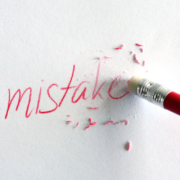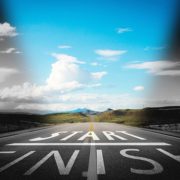A daily routine is critical in having a successful retirement
As originally appeared in The Jerusalem Post on January 31, 2024.
“Convent – a place of retirement for women who wish for leisure to meditate upon the sin of idleness.” -Ambrose Bierce
A few days ago, I met with a client, and we got to the topic of retirement, which for her will be in the next 2-3 years. She said she will be fine, but she is worried that her husband, who is self-employed, won’t be able to retire. She was not talking about the financial aspects of retirement. For that they are both fine. She was talking about her husband’s ability to actually stop working. I told her that in my opinion, transitioning from work to retirement is hard for many, for the self-employed it can be brutal. These are often people who were involved, one way or the other, in their business 24×7. They live and breathe their business, and to suddenly one day go cold turkey can be a recipe for disaster.
I have mentioned many times that as we age, we need to start thinking about our retirement. For many, retirement is the culmination of decades of hard work, and a new beginning of a life of leisure. Though as a financial advisor my main job is to help individuals fund their retirement, I have found that more and more the job entails getting them to start planning and thinking about how they want to spend their time when they no longer need to punch a clock. You better think long and hard before you retire, on how you plan to fill up 24 hours a day, 365 days a year, for what could easily be 20-30 years!
I think for many we got a sneak peak at what retirement was like during the Covid lockdowns. While not scientific, my feeling is that those who kept to a daily routine fared much better than those who ‘winged’ it.
Lawrence Robinson and Melinda Smith, M.A. of HelpGuide.org write, “Many of us spend years picturing our ideal retirement—whether it’s traveling the world, spending more time with family and friends, pursuing hobbies such as painting, gardening, cooking, playing golf, or fishing, or simply enjoying the freedom to relax and take it easy for a change. But while we tend to give lots of thought to planning for the financial aspects of retirement, we often overlook the psychological impact of retiring from work.
Initially, escaping the daily grind and a long commute, workplace politics, or a difficult boss, for example, can seem like a great relief. However, many new retirees find that after a few months the novelty of being on “permanent vacation” starts to wear off. You may miss the sense of identity, meaning, and purpose that came with your job, the structure it gave your days, or the social aspect of having co-workers.”
Christine Stollard author of ‘Your Next Chapter. Dream It. Design It. Live It.’ writes, “Why do you need a daily routine in retirement? What does a daily routine in retirement even look like? It’s probably a lot different from the one you had in your career. Starting with the alarm clock. Retirement marks a significant milestone in a person’s life, signaling the end of a career and the beginning of a new chapter. While many people look forward to the idea of not having to work, the reality is that the transition can be challenging. I know it was for me. But what I found is that establishing a new daily routine after retirement is crucial to engage the mind, maintain a sense of purpose and fulfillment, and prevent boredom and depression. The first step in creating a new routine after retirement is acknowledging the significant change that has occurred. If you’re anything like me, for many years, I followed a structured work environment with a set schedule and deadlines. But, that changes on the first day of retirement when you’re suddenly in control of your own time. This newfound freedom can be both exciting and daunting at the same time.”
Do yourself a favor and start thinking about how you plan on retiring a few years before you stop working. From experience, those individuals who are thoughtful about retirement have much more enjoyment and fulfillment than those who try and wing it. Outside of travel, the most common activities that I hear as a plan is to spend more time with grandchildren and to volunteer.
Chris Orestis, The Retirement Genius, on the importance of a daily routine writes, “Aging can be physically, financially, and emotionally challenging. But, with awareness and self-care, it does not have to be the end of a senior’s passions, health, and love of life. Daily routines enforce good lifelong habits and provide seniors with the consistency to adapt to disruptive life changes. When having no schedule threatens an aimless existence with nothing to do and no places to go, daily routines can renew a senior’s joy and purpose.”
If you feel stuck, then it pays to speak to other retirees to understand how they made the transition from working to this new chapter in their life. How they created a daily routine and how they view its effectiveness. Retirement is a new chapter in life, and as such needs to be planned for.
The information contained in this article reflects the opinion of the author and not necessarily the opinion of Portfolio Resources Group, Inc. or its affiliates.
Aaron Katsman is the author of Retirement GPS: How to Navigate Your Way to A Secure Financial Future with Global Investing (McGraw-Hill), and is a licensed financial professional both in the United States and Israel, and helps people who open investment accounts in the United States. Securities are offered through Portfolio Resources Group, Inc. (www.prginc.net). Member FINRA, SIPC, MSRB, SIFMA, FSI. For more information, call (02) 624-0995 visit www.aaronkatsman.com or email aaron@lighthousecapital.co.il.







